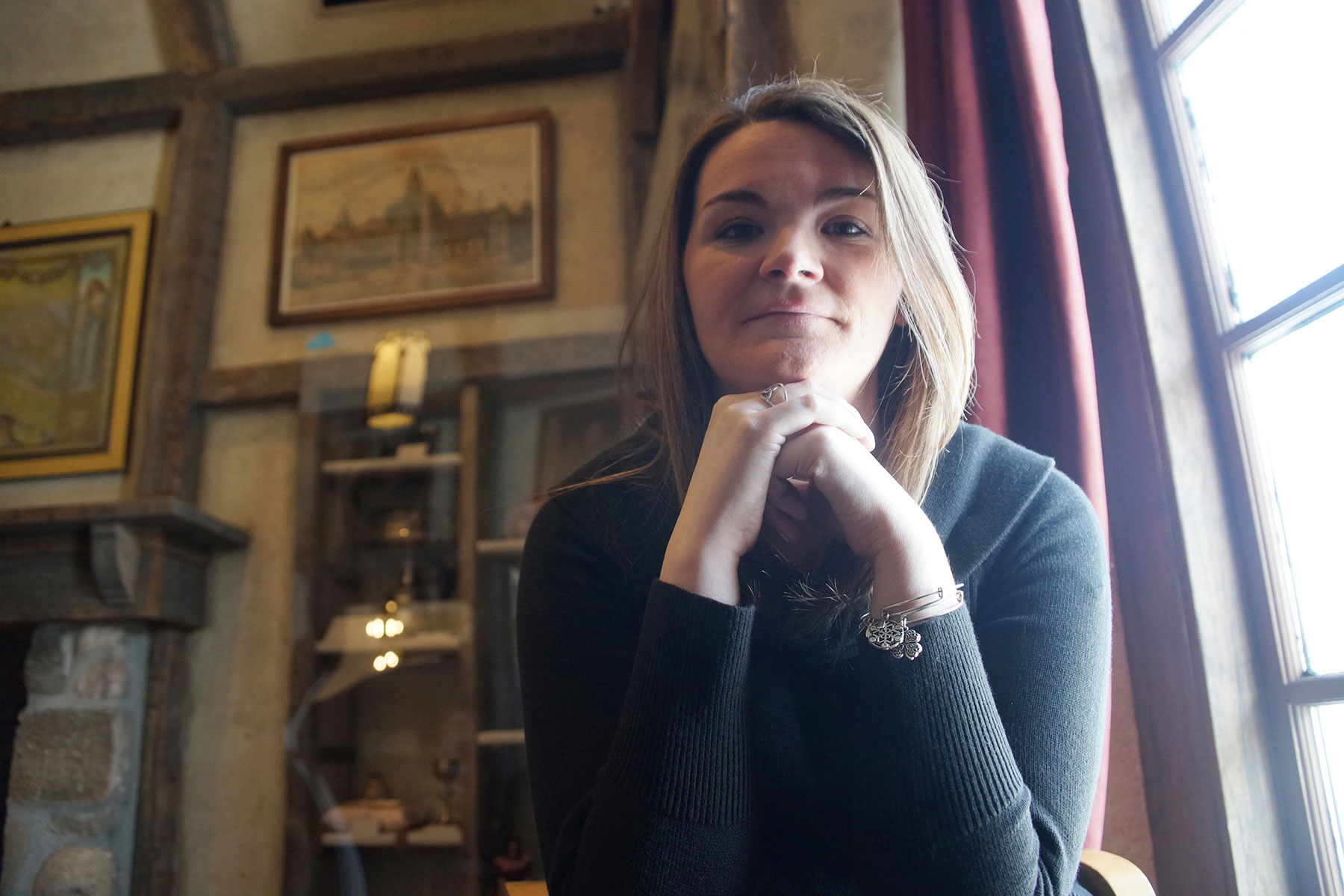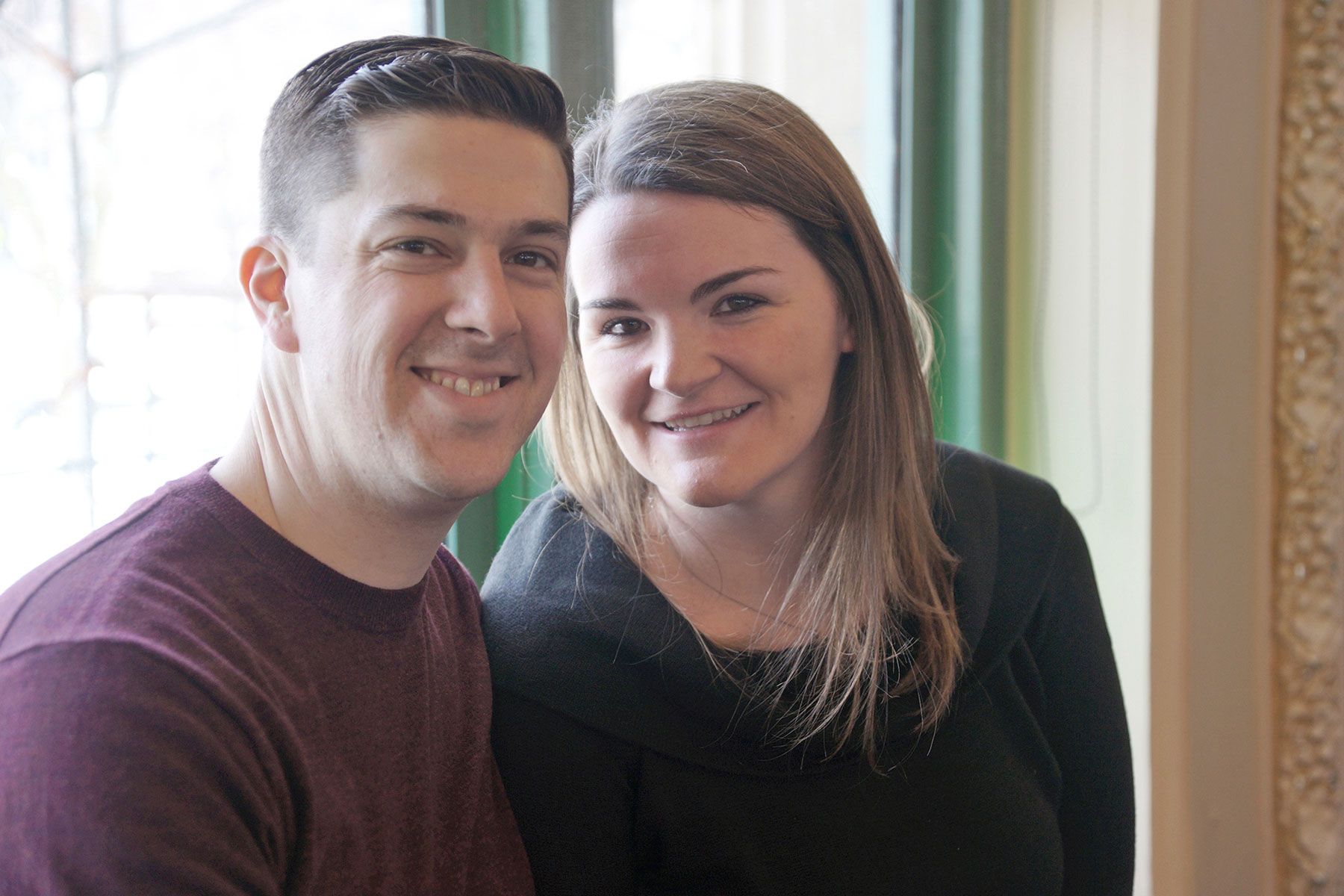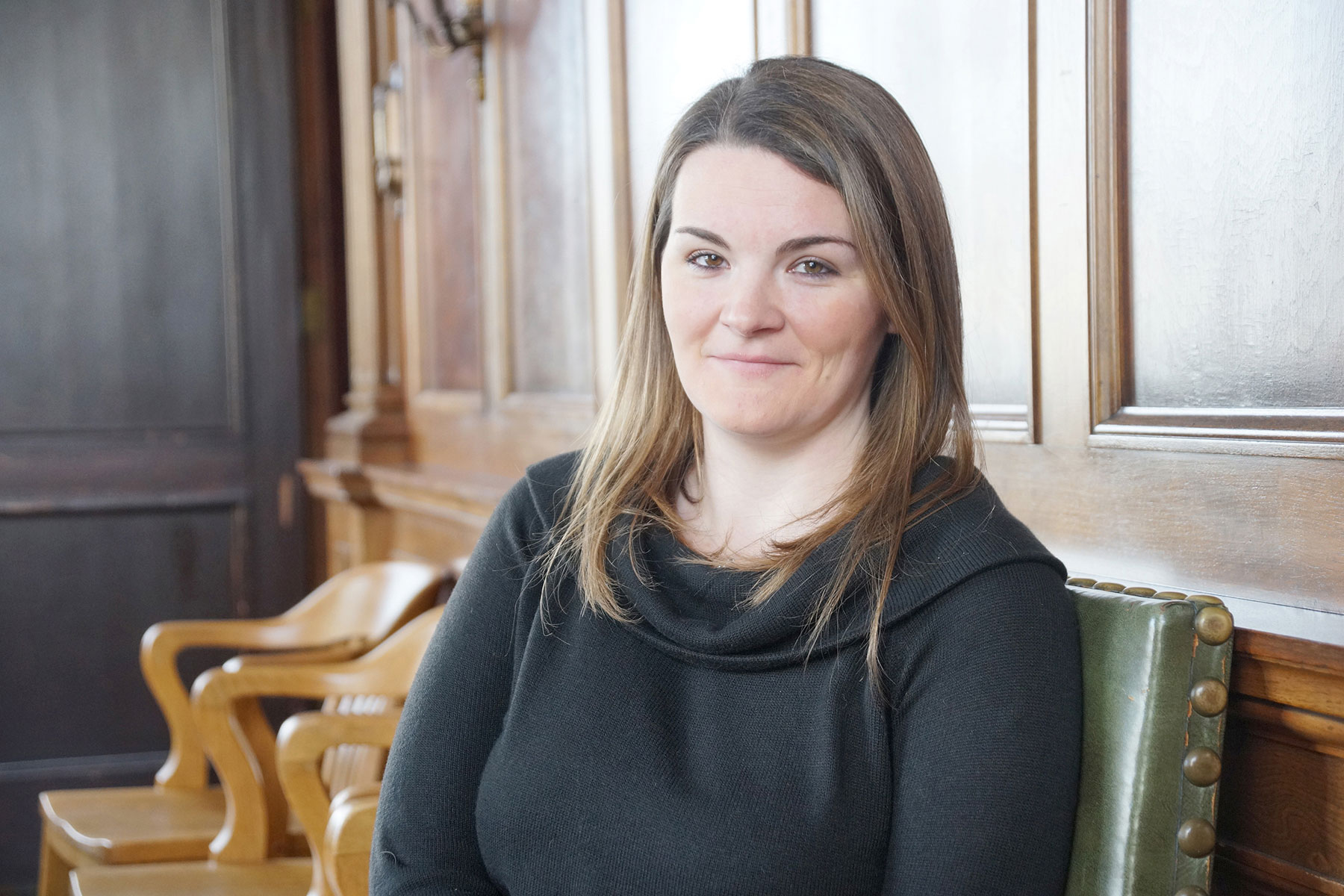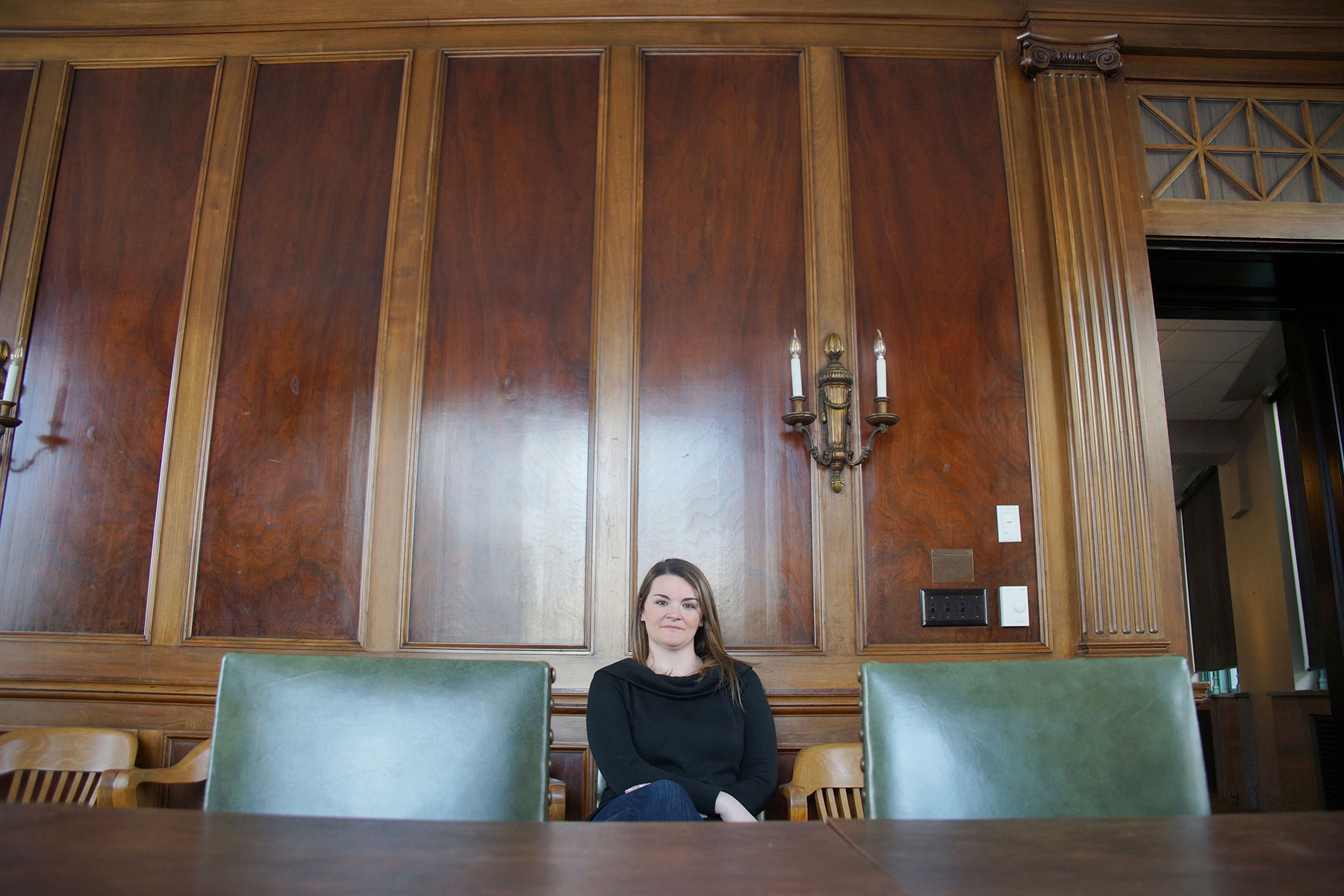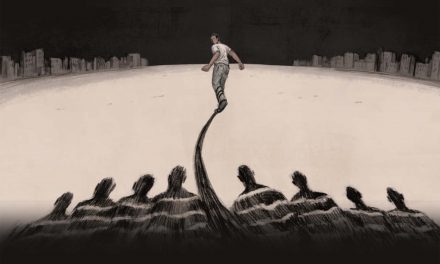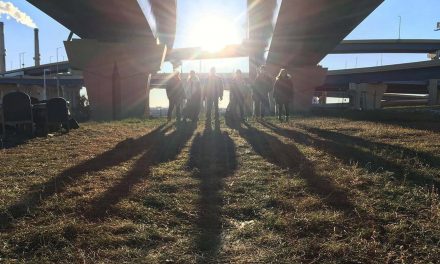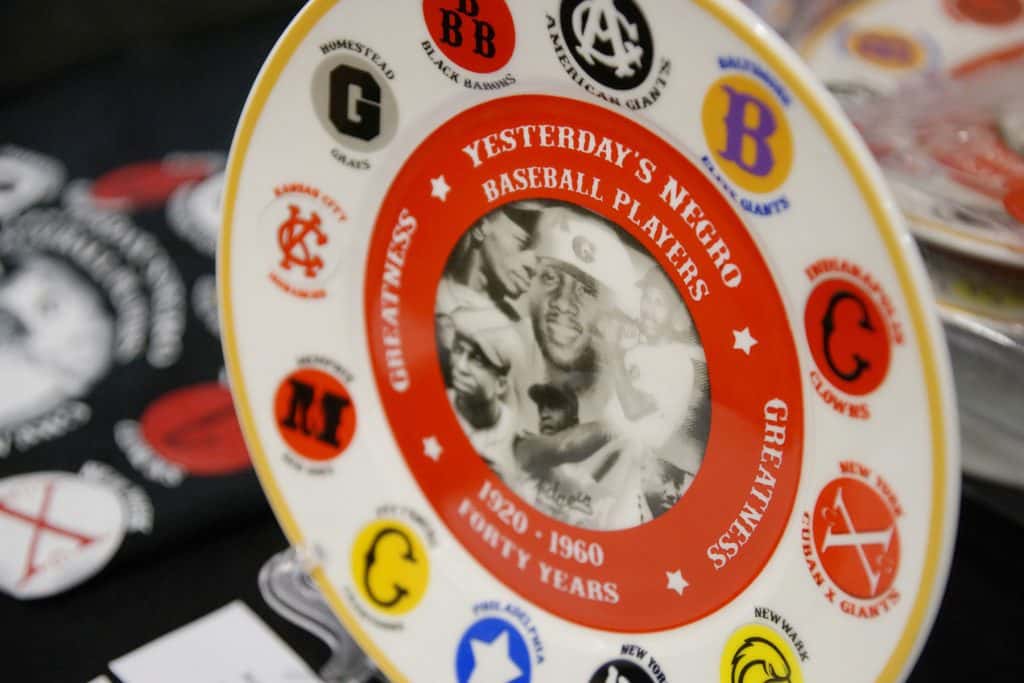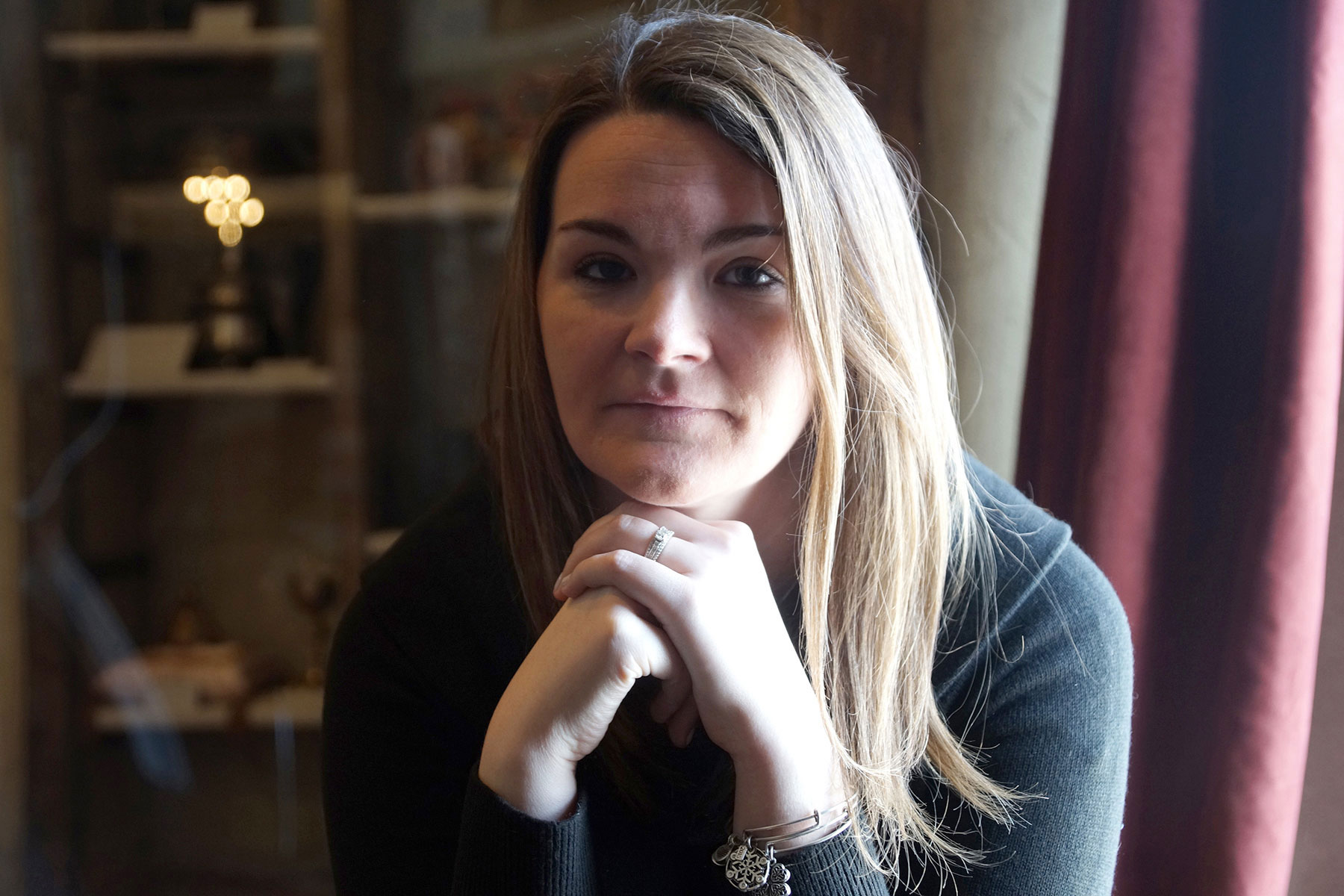
No one expects at age 28 that a spouse will be diagnosed with a fatal disease like cancer.
But for Honore Nolting and her 30 year old husband Tom, they chose laughter as the best medicine to fight for their lives against a threatening late stage illness. With the worst over after 128 days of treatment, the journey of survivorship began and continues for the married couple. Honore documented her experience as a caregiver in a new and heartfelt book to help other young adults with cancer endure and triumph over their medical challenges.
Q&A with Honore Nolting
Milwaukee Independent: What is the fondest memory of your youth, who influenced your life the most while growing up?
Honore Nolting: As I think back, my fondest memories revolve around traditions. From the day-to-day traditions of nightly conversations around the dinner table, my parents tucking us in, to the more annual traditions of summers in the upper peninsula of Michigan, our Valentine’s Day Red Meal, or the Great Milwaukee Circus Parade. My memories from my youth are filled with joy.
My Mom and Dad influenced my life the most while growing up. My parents worked really hard to make sure we had a variety of opportunities and were able to explore our interests. They demonstrated a strong work ethic every day but balanced that with fun. They held us to a high standard, while providing support and guidance, which ultimately has influenced my life the most.
Milwaukee Independent: How important is laughter to your life? And where did that nature come from?
Honore Nolting: Laughter is such an important part of every single day of my life. I love laughing and also making people laugh. There is something so fascinating to me about being able to say something that triggers laughter for someone, and the fact that what people think is funny varies for every single person. I think the nature of this came from my parents. My dad tends to see humor in situations and is very witty, and my mom sees humor in people and human behavior. We were always goofing around growing up and laughing, and I think I inherited a little bit of both of their humors.
Milwaukee Independent: After you learned that your husband Tom had cancer, was there a point when you wanted to give up? And what kept you going?
Honore Nolting: There was never a point that I wanted to give up, but I think that is because there was never a point that Tom gave up. Every day, no matter what we are doing, we react to the people around us, and the energy and attitude of those people. He woke up every day with the belief that he would beat his cancer and he would try to be as upbeat as possible and that really made a difference. We had very hard days, but he kept me going. To see his strength and determination every day coupled with our determination to use laughter as our best medicine kept things in perspective.
Milwaukee Independent: Why did you begin to blog about Tom’s illness? Would you encourage others in similar situations to do so?
Honore Nolting: I originally started blogging for two reasons. First, to keep our friends and family informed of everything that was happening. It was clear very early on that we would be fortunate enough to have so many friends and family wanting to help, but that also was overwhelming because there were so many people to keep informed. I wanted everyone to be able to know what was going on and to get the same updates. Secondly, I wanted to use it as a bit of a journal for us to look back on. We did not know it at the time but Tom had a lot of memory issues due to his chemo, and he does not remember parts of his treatment and surgery. It was a great way for him to look back and be reminded of what he did and the support we had.
I would recommend that others in a similar situation journal or track their experience, even if it is not publicly on a blog. I, too, forgot a lot of things that happened during treatment because it was such a high stress time. It can be hard to read some days, but also is a great reminder of how far we have come. It is an important reminder to have following cancer treatment.
Milwaukee Independent: What was your purpose for writing the book 128 Days & Counting: A Caregiver Story of Young Adult Cancer? And what message do you hope readers will come away with?
Honore Nolting: I wrote the book to help someone in my situation. While it is not a step-by-step guide of how to be a caregiver to a cancer patient, it tells stories from our life before cancer, finds the humor in a terrible situation, and is a real depiction of life after cancer. Had a book like this been available to me when Tom was diagnosed I would have better known the things to look for or prepare for.
I hope readers come away with many things, like hope and the power of laughter and positivity. More than anything, I hope they know what became glaringly obvious to me during his cancer diagnosis – our lives had prepared us for the mess of cancer, even if we had not known it at the time. Life throws curveballs, but it can all be managed by leaning on past experiences, with the support of others, and being willing to admit you do not have the answers.
Milwaukee Independent: In your book you poured your heart out, with very intimate details, so where did you find the courage to express such private things? Do you think that effort will encourage others?
Honore Nolting: The book 128 Days & Counting is very intimate, but it had to be to truly depict what his cancer diagnosis did to our world. To have written anything less authentic would not have been a true memoir. I did not have the courage to publish the book for a very long some time. In fact, from when the book was finished to when I officially gave the final okay for print, I had many sleepless nights and second thoughts about if I wanted our story out in the world. I ultimately kept reminding myself that I had written this to help someone else in our situation, and I owed it to myself to stay true to the original goal of the book.
I do hope being so real will help others because there is something very freeing about having your story out in the world. It has seemed to give permission to others to open up and speak their truth as well.
Milwaukee Independent: What was the hardest part of writing the book? Did you relive those past memories? How did you process those recollections now, compared to at the time when everything was unknown?
Honore Nolting: I was writing the book as he went through his treatment, but to take all of the entries and truly develop the book I had to put myself back in some very tough moments and access the emotions again. It was terrible and some days I could not bring myself to write, it was as if my brain knew it would be too much to process on that particular day. Many days I would sit to write, an hour would pass and I would not have realized how much I wrote, or what I wrote. I would read it back like it was the first time – it was my brain and emotions pouring onto the page. It felt like an out of body experience.
When Tom read the book for the first time it was unbelievable. There was so much that he did not remember due to the chemo and the fact that he was in shock. It is really remarkable what our brains do to help manage trauma.
Milwaukee Independent: No one thinks cancer can happen to them, until it does, and then it is followed by denial and disbelief, so what would you say to people who have not experienced this hardship?
Honore Nolting: First, I would say I hope they never have to experience it – I would not wish cancer on my worst enemy. We never really denied the diagnosis, but we were in disbelief and shock. It took us a few days to really get our minds wrapped around everything that had happened, but then we knew that there was only one thing we could do – get the best doctors to help us and follow the treatment plan.
To be honest, there are still days I wake up in disbelief and shock that cancer touched our lives in such an intense way. For someone that is going through this, I would tell them that being vulnerable is okay, being an advocate is necessary, and taking care of yourself is critical.
Milwaukee Independent: What was the biggest impact of the chemotherapy process on Tom, and yourself?
Honore Nolting: For Tom, I think the side effects of his chemo treatment that are now with him everyday is the biggest impact. He lost some of his hearing, many of his organs were damaged including his heart, bladder and kidneys. I will never forget when we were leaving an appointment after he was cancer-free and they were worried about his heart and damage that had occurred from his chemo. He looked at me and said, ‘We may have beaten my cancer diagnosis, but I think I have to accept the fact that it likely took some years off my life.’
For me, chemotherapy was a marathon. We would actually move into the hospital for six consecutive days every three weeks. I was working from the hospital, being his advocate, making sure everything was taken care of at home, and trying to keep his spirits up. It wore me down, but it was always such a feeling of accomplishment when we got to leave on the sixth day.
Milwaukee Independent: What was the hardest part of being a caregiver for a family member?
Honore Nolting: The feeling of helplessness is by far the hardest part of being a caregiver. You do every single thing in your power to take care of everything they need – and even if you do that perfectly you cannot take away the pain they are feeling.
The other hard part is remembering to take care of yourself. If you do not take care of yourself, you cannot take care of the person in need.
Milwaukee Independent: It is not uncommon for caregivers to become angry and frustrated, then feel guilty as a result, so what was your experience?
Honore Nolting: I never got angry or frustrated with Tom. He was always trying to make sweet gestures and thanked me every single night when we would get into bed, for everything that I was doing to take care of him. When I got angry or frustrated it was because of a situation like long waits at the doctor or the insurance and medical billing issues. It was the peripheral stuff that would get me angry.
Milwaukee Independent: While Tom had a lot of clinical help in healing, being a caregiver took its toll on you, so how did you recover?
Honore Nolting: I think I am still recovering – and it took a long time for me to be able to shed my caregiver role. We are fortunate that Tom beat his diagnosis, but finding a balance of taking care of him in his recovery while still making sure he challenged himself so he could get better was tricky.
The biggest toll on me was mental health and processing everything that happened. Therapy was a tremendous tool for me to help digest everything and figure out how best to move forward. I had always had hesitation about therapy, but it was a game changer in both of our recoveries. When you break your arm, you go to the doctor and get a cast. When you go through trauma, your brain is impacted so I went to a therapist to get help.
Milwaukee Independent: After defining yourself as a caregiver, how do you see yourself now? And once being a caregiver, do you think it is hard for some people to move beyond that status?
Honore Nolting: I see myself now as a supportive wife and a stronger person. It has been a process for me to shed the caregiver role, but I do think I have moved beyond this. It can be really hard to move on when it has been your sole focus for so long. For the sake of our relationship, we had to go back to the ‘roles’ we had before his cancer. When my husband got sick we shifted into a patient-caregiver dynamic. If I did not shed the caregiver role we never would have been able to get back to being husband and wife.
Recovery can be a long road though, and something we still deal with regularly. We know now how hard the aftermath is, and that you never go back to what used to be normal. So some days it does come to the surface but I see that as the natural care you give someone you love, not a full-time job like when we were dealing with his treatment.
Milwaukee Independent: Our society tends to define people by what happened to them, in this case a cancer survivor, so what is your wish for how people see Tom?
Honore Nolting: If this were to ‘define’ him at all, it will be in how he gives back to the cancer community. I want the world to see him as the same fun-loving guy he has always been, with an incredible amount of love and gratitude and a new perspective on life. He handled his diagnosis with such strength that I know when people hear about his story they think about how strong he was – both mentally and physically. This has changed him, and he is so humbled that he can call himself a survivor.
Milwaukee Independent: What are the post-traumatic effects of having cancer in your experience?
Honore Nolting: For both of us, we lost a lot of trust in our day-to-day stability. Our life flipped upside down in a matter of hours, so that is very real for us. We do not take the little things for granted. The other challenge after having cancer is for him to adjust to his ‘new’ body. At the beginning, every ache or pain had us both worried that the cancer might be coming back. He sort of had to reset what he knew his ‘normal’ to be, to know that he was okay, and he might just be dealing with a side effect of treatment.
Lastly, the ‘anniversary’ dates can be very emotional. While the anniversary of his cancer being gone or milestones from his surgery are full of joy and happiness, they also bring back the intensity of all the other emotions during that time of our life. Those can be very challenging days for us.
Milwaukee Independent: How important was love to the whole process of illness and recovery?
Honore Nolting: Love, coupled with patience, was so important during this whole process – especially his recovery. Everyone speaks about love as if they know it, but I think in reality we all personalize and interpret what loves means – or is – in different ways. Despite a terrible situation it was full of so much love – both for each other, our doctors and nurses, and our friends and family that showed us their love. I hope that we gave as much love to each other and all the people that were part of his cancer as we received.
Milwaukee Independent: How did your faith help you through dealing with cancer?
Honore Nolting: We had a few ‘unexplained’ things happen during his cancer that may always remain a mystery. We also had people cross our path that have forever impacted our lives. I feel like the experience taught me to hold onto my faith, and even on our darkest days I had to believe that everything we were going through was all for purpose – even if we were not sure what that purpose was.
Milwaukee Independent: Did you ever experience a lack of compassion, false faith, or dogma projected from anyone in the religious community?
Honore Nolting: We were so fortunate to have the support of the religious community. In fact, the priest that married us, who I have known my entire life, often sent me messages of support during Tom’s cancer. I remember when he first found out. He sent me a note that said ‘I know the diagnosis and treatment for cancer can really transform a person’s life and relationships in unimaginable ways. And as you will find, not all of these changes are bad. We can quickly become wiser and even more focused on those people and things in life that really matter.’ I did not realize it then, but he was 100% right. Sadly, he passed away recently ands I still look back at his notes on especially challenging days.
Milwaukee Independent: What was your biggest frustration with others who were indifferent towards your situation or anyone with an illness?
Honore Nolting: Frustration often manifests from feeling like someone is not doing something the way you would do it. Everyone deals with these situations differently. I certainly wish some people had handled it in other ways, but I never wanted to judge or get frustrated when someone did not know what to do.
Milwaukee Independent: Considering most people are taught to be in control of their lives, how did you deal with the helplessness of the situation?
Honore Nolting: We dealt with it hour-by-hour, day-by-day. It was the only way to feel any sort of control. Other than the doctor appointments, we could not plan anything further beyond a single day. To deal with the helplessness, we just focused on the things we could control like our attitudes.
Milwaukee Independent: In getting support from friends and family, what gave you the most strength and what remained a private hurt that others were clueless about?
Honore Nolting: What gave us the most strength was knowing that we had people in our corner that would do anything to help us be successful. We got cards and care packages daily and those were reminders to not give up and keep doing everything we could do within our power. I think what remained more private was how tough the recovery was. The expectation was that after we beat cancer we could immediately go back to our old lives – which was not true. The aftermath and shock of everything that happened created some incredibly dark days for us. We kept it private because we felt like it would not be as understood. There was not anything that would ‘fix’ things, so we were fortunate to be able to deal with the challenges of survivorship.
Milwaukee Independent: How important were external, non-family support groups during the cancer treatment and recovery process?
Honore Nolting: We both became angels for Imerman Angels, a 1:1 cancer support network, and were quickly matched with a couple. The husband had a similar diagnosis to Tom, and I mentored the wife who was his caregiver. Being able to help them through their cancer helped our own recovery. By helping someone else who is in the midst of their fight, in a way you feel like an ‘expert,’ which falsely feels like control. However, it gave us a little bit of extra confidence that we had beaten his cancer diagnosis, and it gave them that same hope. It also gave us a feeling of purpose.
Milwaukee Independent: You presented an incredibly positive attitude during all that you endured, but did that become exhausting and at times a burden?
Honore Nolting: Being constantly positive outside of our house did become exhausting at times. We did not want people to worry about us and were sick of the spotlight being on us, or be treated differently. However, it was never fake. We were still positive, there were just days we did not want to be around people and have to overplay the positivity to hide where we were really at with his recovery. It was never a burden though. It is mind over matter, some days the forced positivity would help pull us out of a funk.
Milwaukee Independent: You were in the spotlight during a traumatic situation, so how did you shine under so much pressure? How did you crack, and bounce back?
Honore Nolting: To handle the pressure of what we were dealing with I broke it down into manageable pieces. For example, instead of focusing on six days at the hospital, I would just take it one day at a time so that it did not become overwhelming. I read a quote when Tom was sick and it said, ‘If you are depressed you are living in the past, if you are anxious you are living in the future, if you are at peace you are living in the present.’ I took that to heart and really tried to live in the present whenever that was a reasonable option.
Milwaukee Independent: Did you find time to let go of being a puppeteer, cheerleader, and advocate for Tom and just be yourself?
Honore Nolting: I did once he had successfully made it through his surgery and was on the road to recovery. However, prior to that, there was never time to let go of all the things I was juggling. Even if I had wanted to, it would not have been an option. While all those roles were challenging, I took them on as myself and they sort of came naturally to me. I never felt like I lost myself.
Milwaukee Independent: Has your story of cancer, and survival, ever made others uncomfortable? Is it too much reality for them to deal with?
Honore Nolting: I think it was tough on people that were near our age, this happened to us at 28 and 30. The reality that even though we are young, life threatening things can happen was a lot to accept. It is not common to be as young as we are and see Tom fighting for his life. I know many of our friends made their own visits to the doctor to make sure they were aware of their health and bodies.
Milwaukee Independent: Cancer took a lot from you and your husband, did it give anything back?
Honore Nolting: Cancer took so much from us, but we did not let it take away the basics. We are stronger than ever and still have our humor and positivity. We are armed for whatever else life will hand us. It gave us a lot back, such as a renewed perspective, even more gratitude for all that we have, and additional purpose in our lives as we work to give back to the cancer community – especially the young adult cancer community.
I think it also gave a lot back to the people around us. We are aware of several positive things that friends and family have done as a result of what we went through. From seeking mental health guidance, to running a marathon to raise funds for a cancer-related cause, to being more open about their own struggles. That makes us both really happy too. We want as much good to come from our bad situation as possible.
Milwaukee Independent: What advice would you offer to others caregiving a family member with cancer, or just starting their journey of diagnosis or recovery?
Honore Nolting: I would tell them that they will be okay. The days can be dark and tough but do not be afraid to ask for the help or assistance that you need. And, of course, I would tell them that laughter is the best medicine. Find as many moments of joy and laughter as you can and hang on to them, and think of them. Those are the moments that you will need those most.

